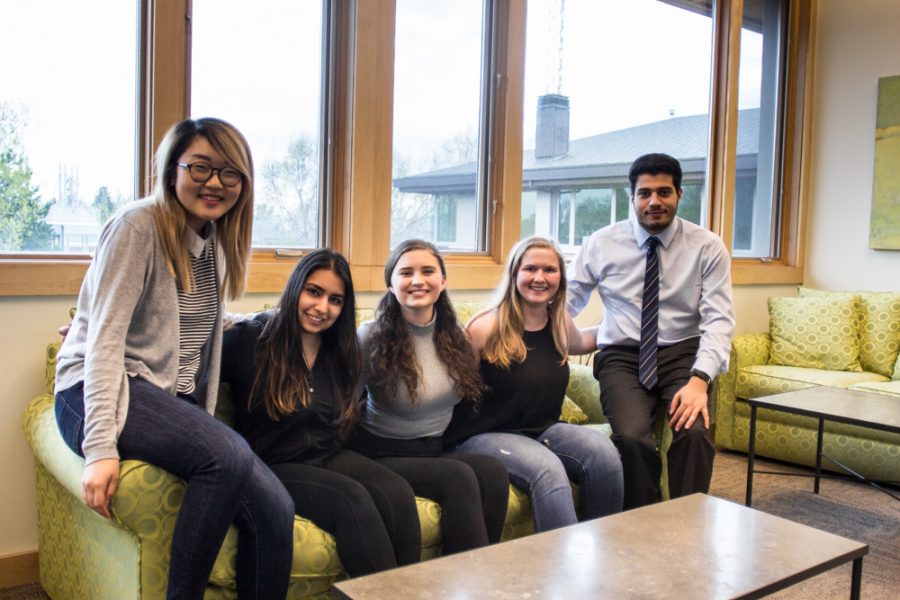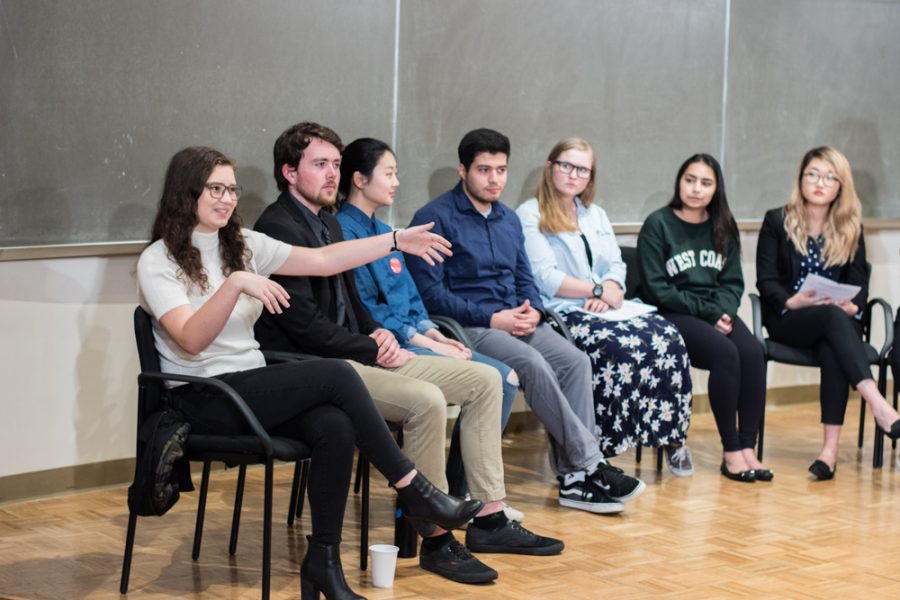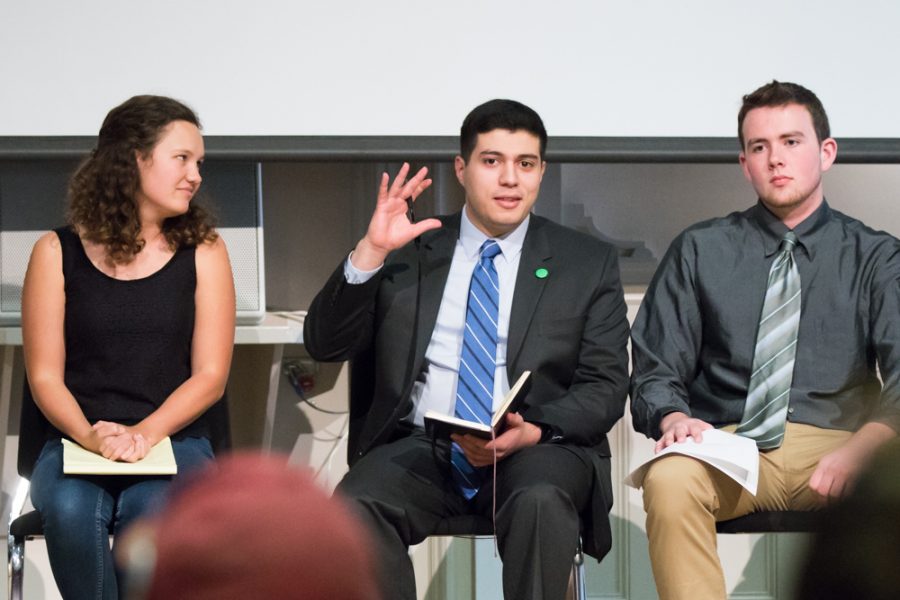 In February, Whitman’s Board of Trustees will formally discuss student representation on the Board of Trustees, a long-time goal of leaders of the Associated Students of Whitman College (ASWC).
In February, Whitman’s Board of Trustees will formally discuss student representation on the Board of Trustees, a long-time goal of leaders of the Associated Students of Whitman College (ASWC).
ASWC administrations have pushed the issue of representation on the Board since the 1970s, without success. The Board of Trustees makes ultimate decisions on the priorities and policies of the college and sets the budget; however, it almost always follows the recommendations of the ten committees which report to it. Student representatives serve on four of these committees––diversity, academic affairs, enrollment and student life––but there are no formal representatives on the Board of Trustees itself.
“President Bridges tries to give me time [to speak with the Board] and allows me to use it however I see fit. But this is usually an informal time. [During the last meeting] I was given the opportunity to speak to them during lunch. Whether or not the government board members come is up to their discretion … hypothetically President Bridges or one of the trustees could say ‘Our agenda’s too full, we don’t have time,'” said ASWC President Kayvon Behroozian. “The relationship I have with them is, in that way, informal.”
During his first address to the Board of Trustees last fall, Behroozian urged the trustees to consider formal representation for students. While the trustees have not made a formal decision on the matter, they have agreed to address the issue formally during their next meeting.
Appreciation for the hard work and valuable perspective provided by students serving on committees played a large role in convincing the Board to begin a conversation on the matter.
“In committees, students’ comments have been very influential. The committees are where the bulk of the work is done, and not in the Trustee meetings. I think it’s hard for people to understand this, but the Board is a consensus-driven organization and the heavy lifting of understanding issues and crafting policies and solutions and responses goes on at the committee level,” said Vice-Chair of the Board of Trustees Nancy Serrurier. “The students who are on the Board’s committees matter greatly. We’re really glad they’re there … [Students] should thank them for the time they put in, and the classes they miss.”
While student representation on committees is viewed by many on campus as a positive influence, concerns remain about students’ representation. Whitman’s Board of Trustees is comparatively small, meaning student representatives may have more of an influence, and there are concerns about confidentiality. In addition, student representatives would necessarily change every two years, while most trustees have spent decades guiding and supporting the college.
“Since students are only here for four years, it seems like the Board of Trustees has more of a broad lens of the college as an institution, and of where it’s going,” said junior Keenan Hilton. “At the same time it’s fair to say that students now probably have similar concerns as the students of the future at the college, and, as the education of the students is mostly what a college is for, I think that it is altogether appropriate that students would have more of a voice.”
Student representation on the Board of Trustees could potentially take several forms. A report compiled by Behroozian in 2012 found that Whitman’s peer institutions have a spectrum of representation for students on their Boards, ranging from no representation to full voting members elected by the student body.
It is also possible that, should student representatives join the Board, they would remain non-voting (ex-officio). These representatives would still be able to listen to Board meetings and share students’ perspectives. Another possibility would be for the Board to accept one or more young alumni members from graduating classes, who would serve a set term after their graduation before being replaced by a member of the next class.
“Students and alumni currently play active roles on the committees of the Board of Trustees. I believe that Whitman benefits from having this level of student and alumni involvement. I also believe that Whitman is likely to benefit from having a student or young alumnus/alumna as a member, either voting or ex-officio, of the Board,” said President George Bridges in an email.
Students representation on the Board of Trustees has been a goal for ASWC for more than 30 years, and the trustees’ discussion of the issue marks an important step towards potential progress. Whether or not the Board accepts student representatives, the discussion of the issue in itself is a significant step forward.
“I think it’s important to know that we’re not seeking representation because we think the Board of Trustees [is] doing their job wrong. That’s not the case,” said Behroozian. “We’re seeking representation because we think their decisions and actions could be better informed by students.”














